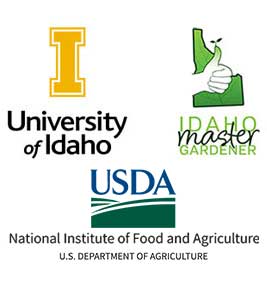All Dry Beans Alerts
Your search for Dry Beans Alerts yielded 6 results.
Swipe Left or Right to navigate Alerts
2022 Pulse Crop Survey
Dry Beans Treasure Valley, Treasure Valley - Idaho, Eastern Idaho, Magic Valley
2022 Pulse Crop Survey
Posted on: December 8, 2022 by Ruth Givens & Ronda Hirnyck
The Pulse Crop Survey is an annual survey of pulse crop growers and consultants about pulse crop diseases and their management, conducted by Montana State University. Through this survey we aim to understand which resources pulse growers and consultants seek out for information, which diseases challenge pulse crop production, which integrated pest management practices are implemented, and how effective they are perceived to be.
Please consider participating in this survey. Your participation in this survey will help us identify research needs and resources needed to support economic and sustainable pulse crop production in the Northern Great Plains and Pacific Northwest. Your participation in this survey is entirely voluntary and anonymous. This survey should only take 10 minutes of your time.
You can access the survey by clicking on the following weblink: https://bit.ly/Pulses2023
2021 Virtual Bean School
Dry Beans All Locations
Posted on: January 12, 2021 by Jerry Neufeld
The 2021 Treasure Valley and Magic Valley Bean Schools will be virtual this year. The Bean School will be held January 27 and 28 in the morning. There will be 2 Idaho pesticide licenses credits available. Click on the pdf below for more information.
2019 Treasure Valley Bean School
Dry Beans Treasure Valley
Posted on: January 11, 2019 by Jerry Neufeld
The 2019 Treasure Valley Bean School will be held at the Hampton Inn in Nampa on January 17. Click on the pdf below for more information.
2018 Treasure Valley Bean School
Dry Beans Treasure Valley
Posted on: January 11, 2018 by Jerry Neufeld
The 2018 Treasure Valley Bean School is January 18 at the Hampton Inn in Nampa. There are 2 Idaho Pesticide License credits. Click on the pdf below for more information about the program.
Dry Beans
Dry Beans Treasure Valley - Idaho
Posted on: July 27, 2006 by Jerry Neufeld
The University of Idaho is hosting a Dry Bean Breeding Field Tour at the Parma Research and Extension Center on Wednesday August, 16, 2006 from 8 to 10 a.m. Dr. Shree Singh will update participants about his work with new varietal candidates, the Idaho Dry Bean Trial, the Western Regional Bean Trial and the National Cooperative Dry Bean Nursery.
If you would like to attend please RSVP to the Canyon County Extension Office by August 14 at 459-6003 so that we can make sure to have enough refreshments on hand.
soybean rust in beans
Dry Beans Treasure Valley - Idaho
Posted on: May 5, 2004 by Jerry Neufeld
Following is information provided by Melodie Putnam of the Oregon State University Plant Clinic.
Soybean rust is an exotic pathogen that is not established in the continental U.S. It has recently moved north of the equator, and is currently in Brazil, Argentina and Paraguay. Like other rust diseases (such as wheat rusts), this disease can move long distances in air currents, and is expected to reach the U.S. soon.
Why should we in the West care about soybean rust? Because it also goes to yellow sweet clover (Melilotus officinalis), vetch (Vicia dasycarpa), lupine (Lupinus hirsutus), green and kidney bean (Phaseolus vulgaris), lima and butter bean (Phaseolus lunatus) and cowpea or backeyed pea (Vigna unguiculata). Soybean rust can cause severe defoliation and loss of yield in susceptible crops. Therefore, early detection is essential.
Soybean rust is a Federal quarantine status pathogen, but there are no plans for eradication of infected crops. Instead, it has been shown that once an infestation of soybean rust is detected, if early enough, effective control can be obtained with carefully timed fungicide applications. Detection early in the season with properly timed application of fungicides appears to present the best alternative for controlling soybean rust in the United States. It is particularly important to limit the spread of this disease, due to its destructive potential.
Please be alert to the possibility of this rust moving into bean, lupin and other susceptible crops. For more information on soybean rust, including a list of hosts and photographs of symptoms, see http://www.aphis.usda.gov/ppq/ep/soybean_rust/.
Oregon growers should contact the OSU Plant Clinic for information on how to proceed if soybean rust is suspected in their crops. Please contact:
Melodie Putnam
OSU Plant Clinic
1089 Cordley Hall
Corvallis, OR 97331-2903
541-737-3472
Growers in other states should contact their own university or state departments of agriculture diagnostic laboratories.



